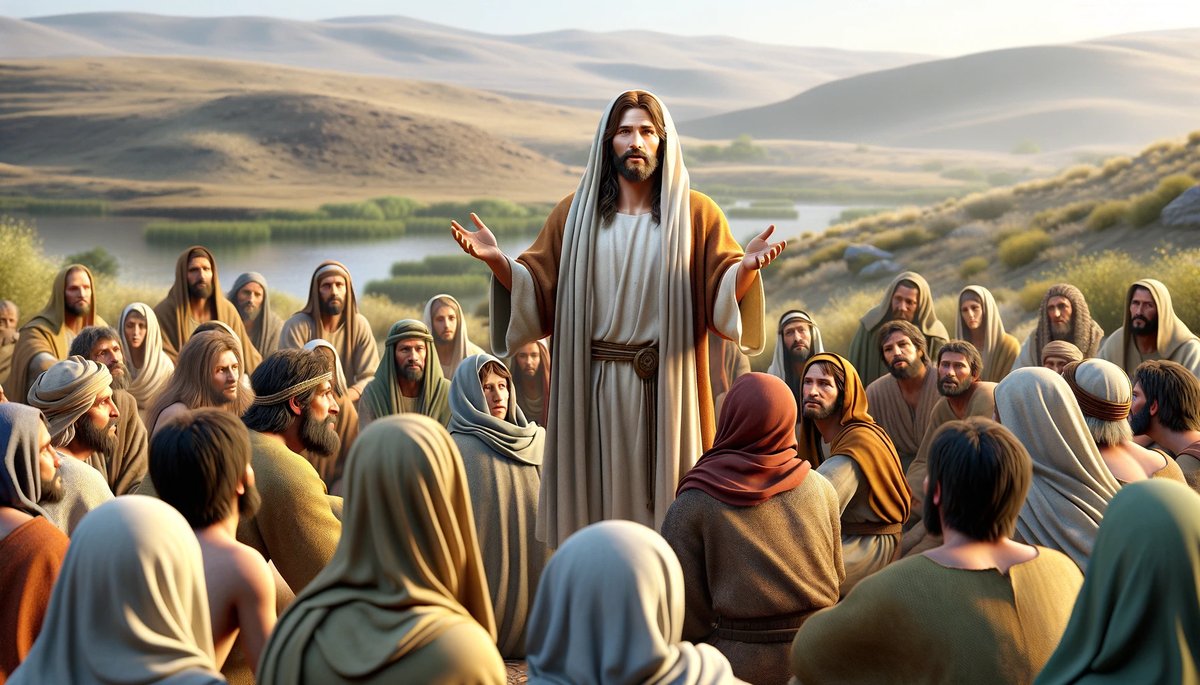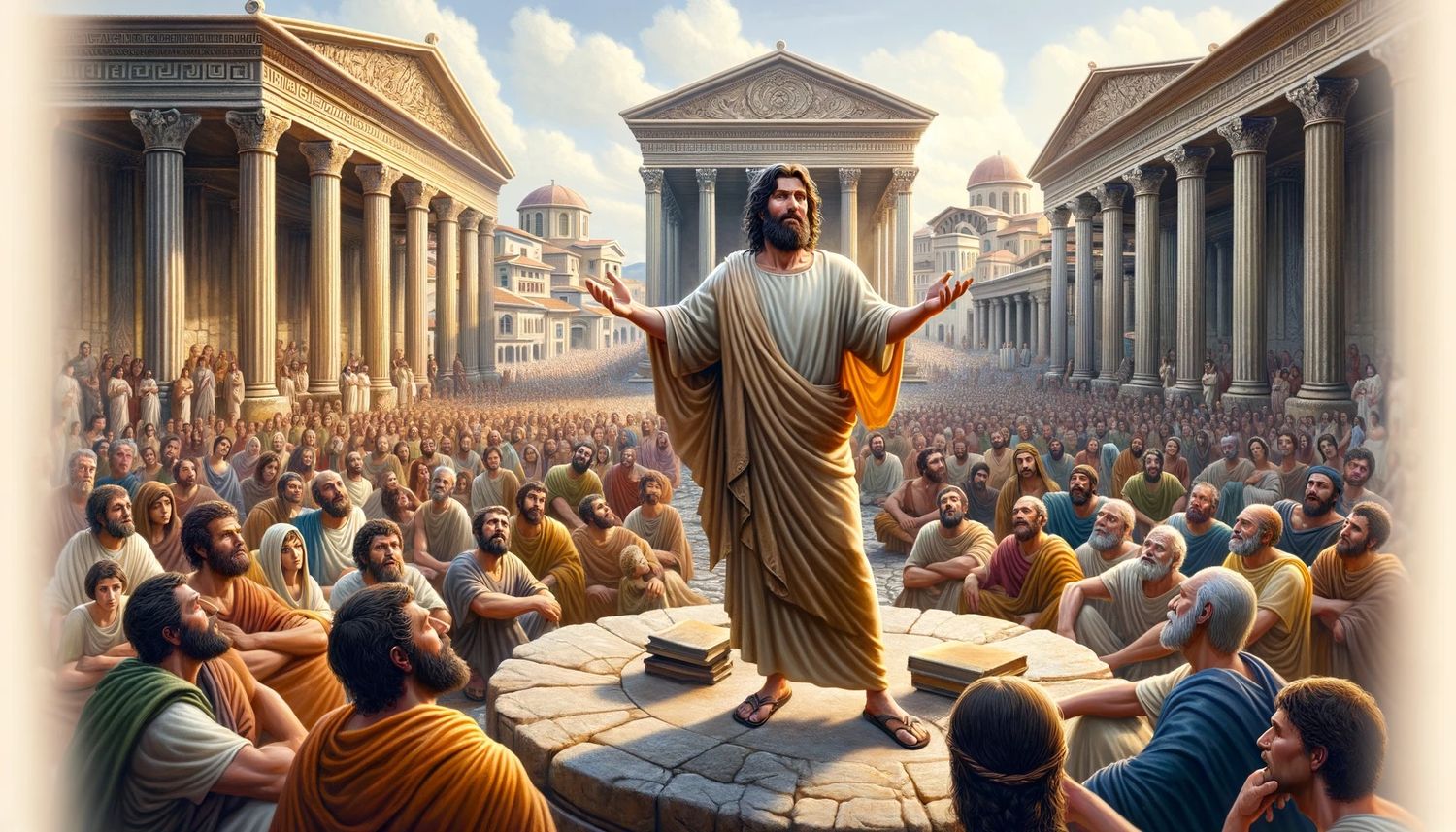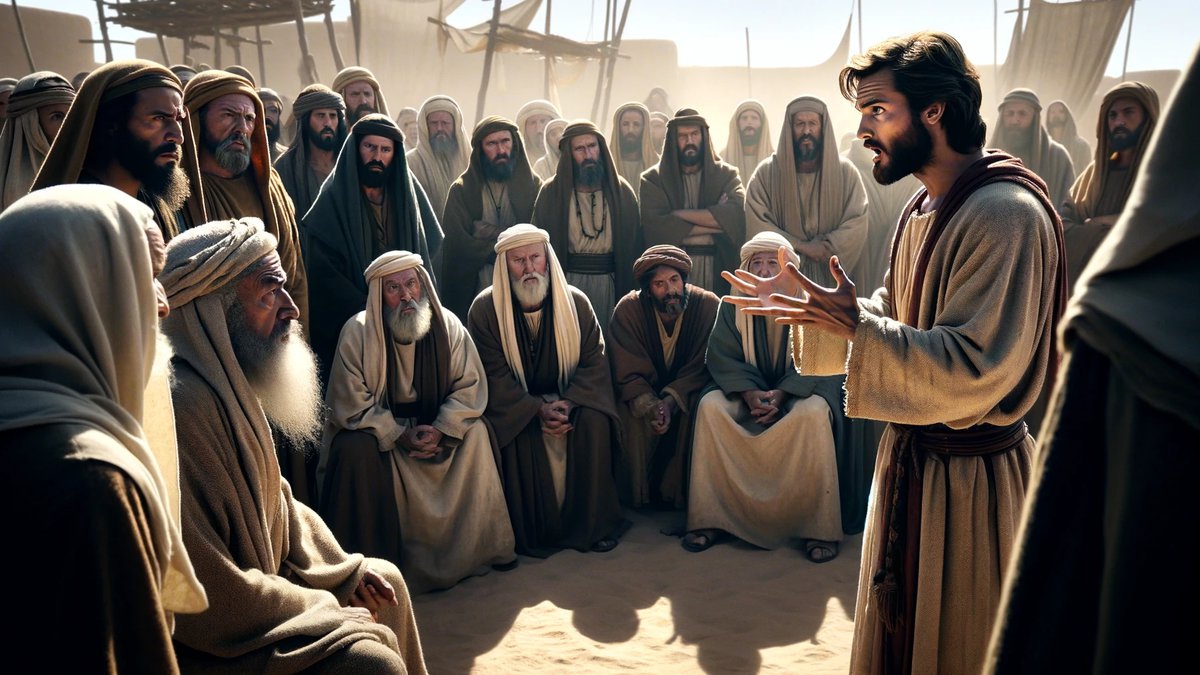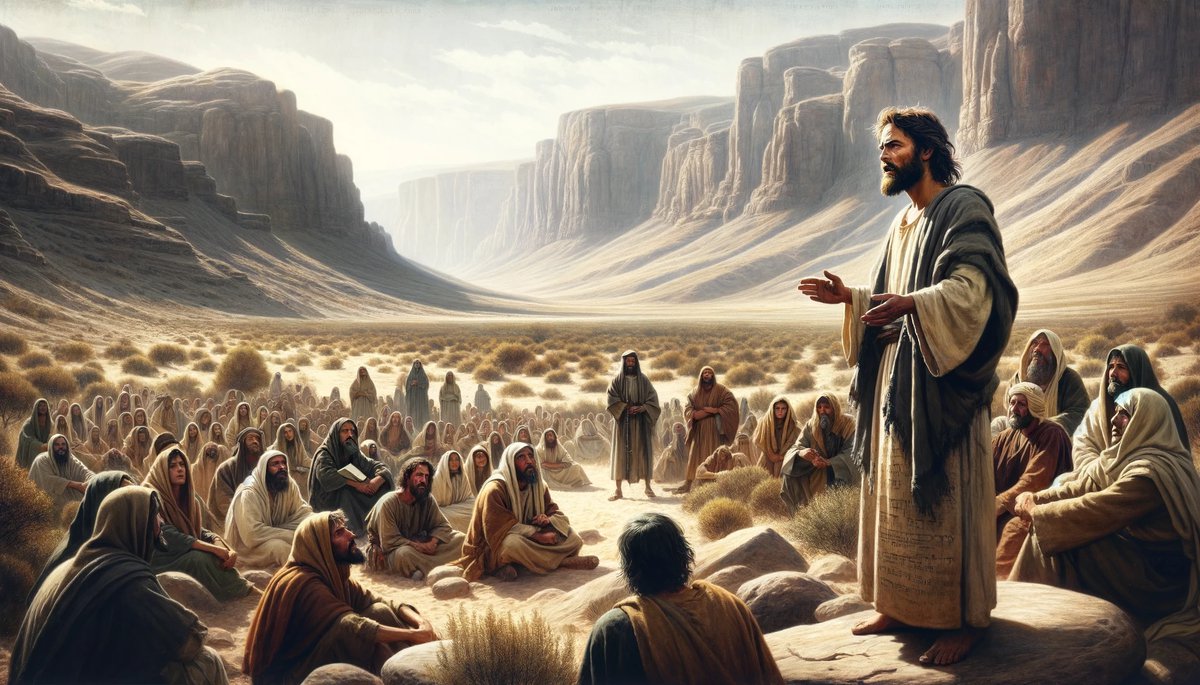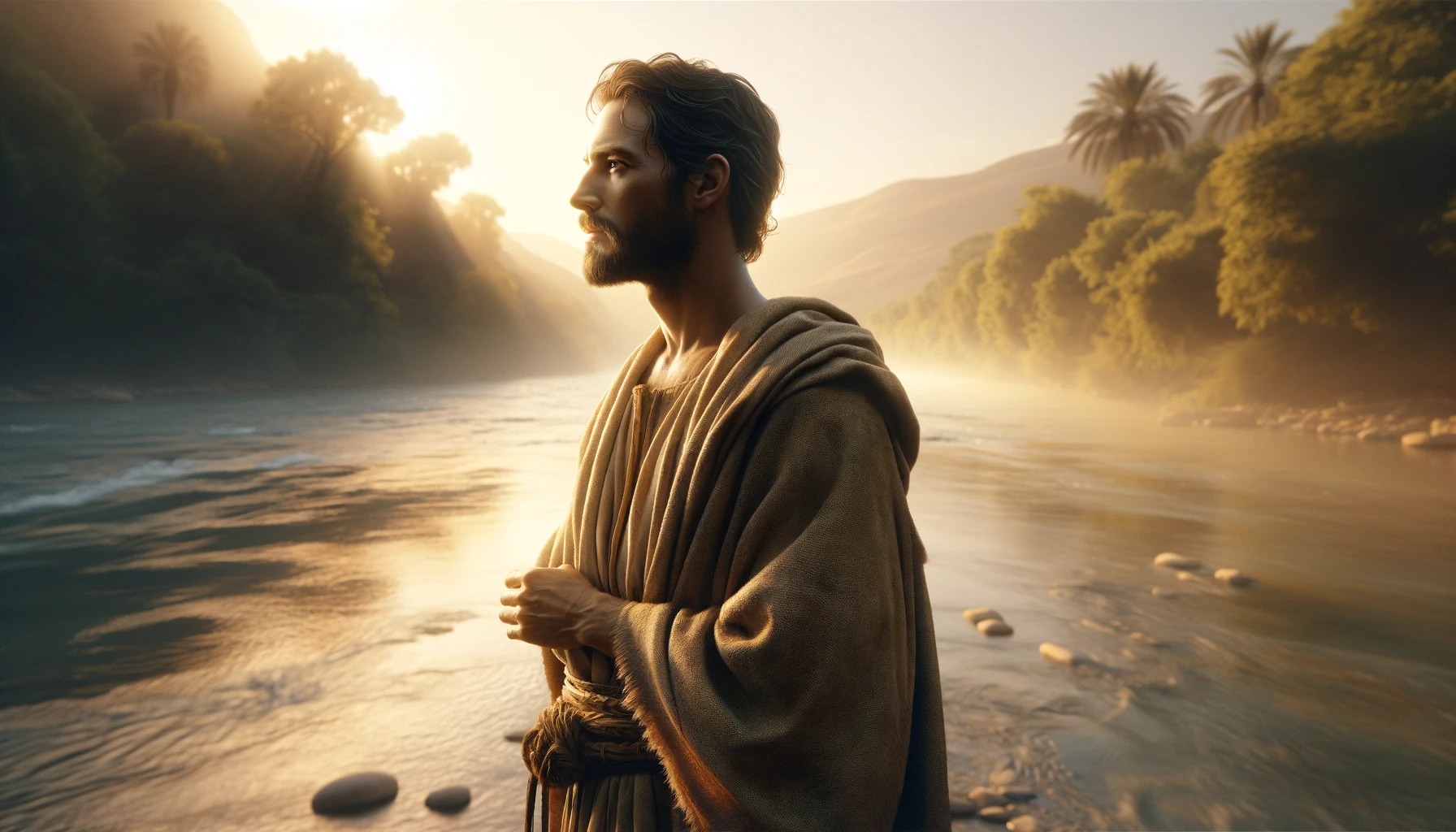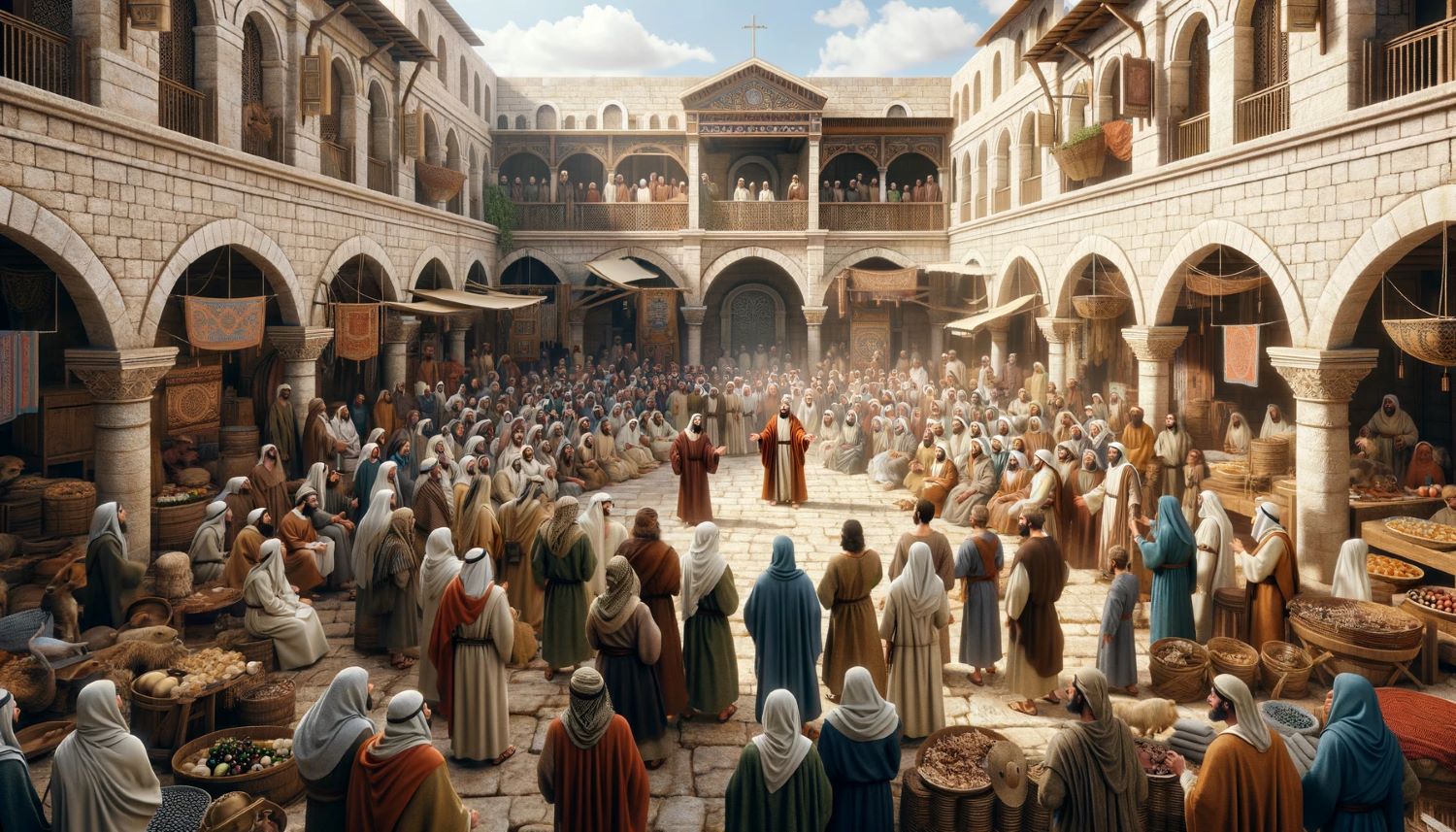Home>Theology and Spirituality>What Did John The Baptist Preach
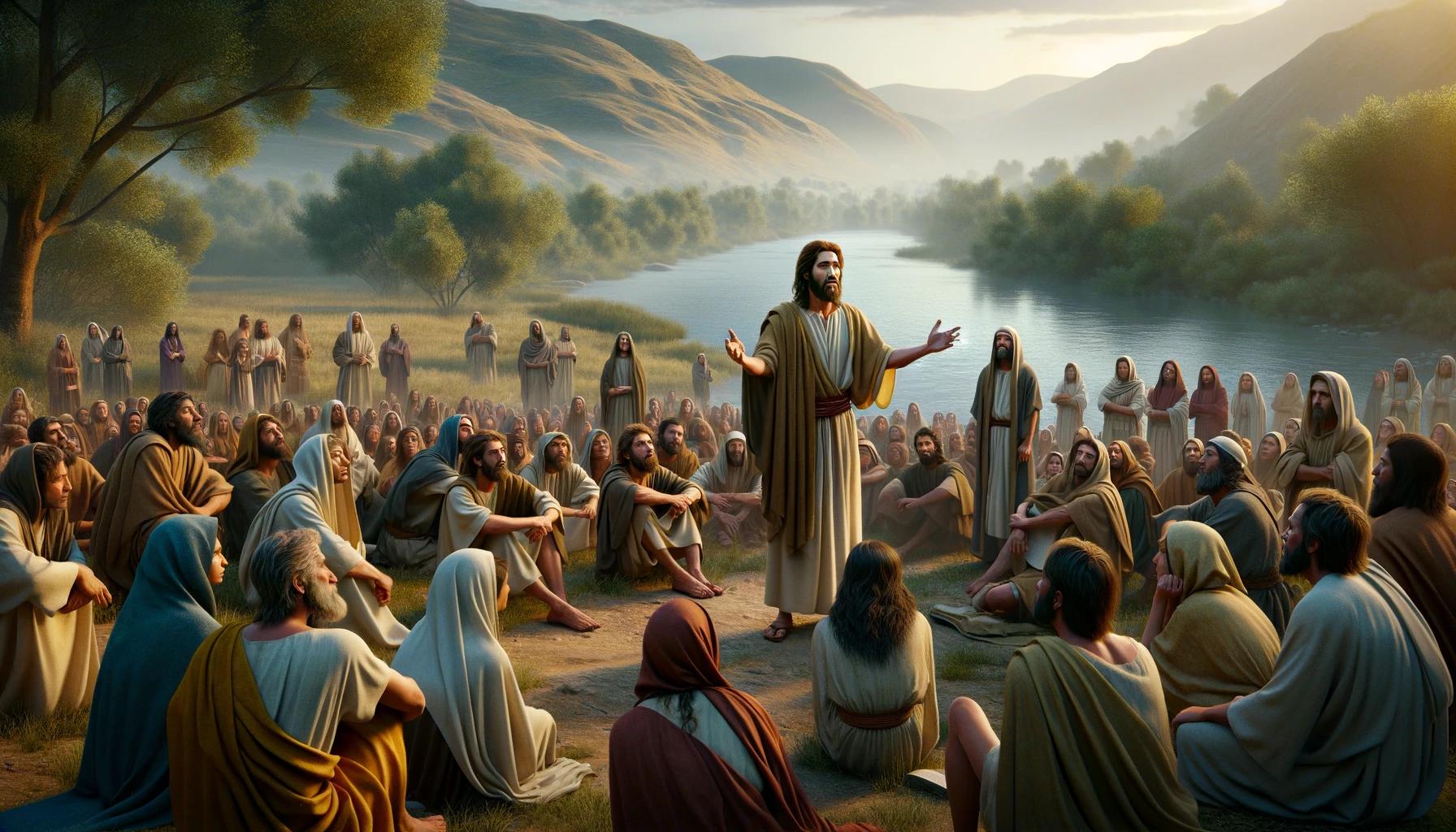

Theology and Spirituality
What Did John The Baptist Preach
Published: February 22, 2024
Ericka Andersen, an editor at Christian.net, expertly merges digital strategy with content creation, focusing on faith and societal issues. Her communication skills enhance the platform's engaging narratives, fostering meaningful dialogue on belief's impact on society.
Discover the teachings of John the Baptist and his impact on theology and spirituality. Explore his powerful messages and influence in religious history.
(Many of the links in this article redirect to a specific reviewed product. Your purchase of these products through affiliate links helps to generate commission for Christian.net, at no extra cost. Learn more)
Table of Contents
Introduction
John the Baptist, a prominent figure in Christian history, is known for his powerful and compelling message of repentance and preparation for the coming of the Messiah. His influence and teachings have left an indelible mark on the spiritual landscape, resonating across generations and continuing to inspire seekers of truth and spiritual transformation.
As we delve into the profound teachings of John the Baptist, we embark on a journey that transcends time and space, delving into the heart of his message and its enduring relevance in today's world. John's life and ministry serve as a beacon, guiding us toward a deeper understanding of repentance, spiritual awakening, and the anticipation of divine fulfillment.
In exploring the essence of John's preaching, we are invited to reflect on the timeless themes of redemption, renewal, and the profound call to turn inward and seek a transformation of the heart. His message transcends mere historical significance, offering a timeless and universal appeal that speaks to the human longing for spiritual awakening and the pursuit of a meaningful existence.
Through this exploration, we will uncover the foundational principles that underpinned John the Baptist's ministry, gaining insight into the profound significance of his message and its enduring impact on the spiritual consciousness of humanity. As we journey through the life and teachings of this revered figure, we are called to embrace the essence of his message and allow it to resonate within our own hearts and lives.
Join me as we embark on a transformative exploration of John the Baptist's message, delving into the depths of his profound teachings and discovering the timeless wisdom that continues to illuminate the path of spiritual seekers around the world.
The Background of John the Baptist
John the Baptist, a pivotal figure in Christian history, emerged onto the scene against the backdrop of a spiritually charged era. His birth was foretold by an angel, and he was destined to prepare the way for the coming of the Messiah. John's lineage can be traced to the priestly lineage of his father, Zechariah, and his mother, Elizabeth, who was a relative of Mary, the mother of Jesus.
Raised in the wilderness, John led a life of simplicity and devotion, embodying the prophetic tradition of the Old Testament. His ascetic lifestyle and unwavering commitment to his divine calling set him apart as a unique and compelling figure in the religious landscape of his time.
John's upbringing in the wilderness instilled in him a deep connection to the spiritual heritage of his people. His immersion in the rugged terrain and solitary contemplation cultivated a profound sense of spiritual awareness and a keen sensitivity to the divine presence. This formative period laid the groundwork for his later ministry, shaping him into a bold and uncompromising herald of truth and righteousness.
As he matured, John's spiritual fervor intensified, propelling him toward his prophetic mission. Clad in a garment of camel's hair and sustained by a diet of locusts and wild honey, he embodied the essence of prophetic tradition, echoing the voices of the ancient prophets who had heralded the coming of a new era of divine intervention.
John's background, steeped in the rich tapestry of Jewish tradition and prophecy, positioned him as a bridge between the old and the new, the herald of a transformative message that would reverberate through the corridors of time. His profound connection to the spiritual legacy of his forebears infused his ministry with a sense of continuity and purpose, as he stepped onto the stage of history to fulfill his sacred calling.
In the midst of a society grappling with spiritual complacency and moral decay, John emerged as a beacon of hope and renewal, drawing multitudes to the banks of the Jordan River with his impassioned proclamation of repentance and the imminent arrival of the long-awaited Messiah.
John the Baptist's background, characterized by spiritual depth and prophetic heritage, serves as a testament to the enduring power of divine purpose and the timeless relevance of his message. His life and lineage intertwine with the fabric of salvation history, weaving a narrative of profound significance and eternal resonance.
The Message of Repentance
At the core of John the Baptist's ministry resided the resounding call to repentance. His message reverberated with urgency, compelling individuals to turn away from their former ways and embrace a radical transformation of heart and mind. The concept of repentance, or metanoia in Greek, encapsulated a profound shift in consciousness, a turning toward the divine and a rejection of the patterns of sin and spiritual apathy.
John's call to repentance was not merely a superficial exhortation to amend one's behavior; it penetrated to the depths of the human soul, urging a fundamental reorientation toward God and righteousness. His impassioned plea echoed through the wilderness, stirring the hearts of those who sought a genuine encounter with the divine.
The essence of repentance, as articulated by John the Baptist, transcended ritualistic observances and external displays of piety. It encompassed a radical reevaluation of one's inner disposition, a recognition of the need for spiritual renewal, and a sincere commitment to align one's life with the will of God.
John's message of repentance cut through the veneer of religious complacency, challenging individuals to confront their moral failings and embrace a path of genuine transformation. It was a call to authenticity, a summons to forsake the trappings of hypocrisy and embrace a life of integrity and spiritual authenticity.
The baptism of repentance, administered by John in the waters of the Jordan River, symbolized a symbolic cleansing, a ritual immersion that signified the washing away of sin and the emergence of a new, spiritually awakened existence. It served as a tangible expression of the inner transformation that John's message sought to evoke—a cleansing of the soul and a rebirth into a life of righteousness and devotion.
The message of repentance proclaimed by John the Baptist reverberates across the centuries, resonating with timeless relevance and enduring significance. It stands as a poignant reminder of the universal human need for spiritual renewal and the transformative power of genuine repentance. John's proclamation transcends the confines of historical context, speaking directly to the innermost yearnings of the human spirit and offering a pathway to profound spiritual awakening and renewal.
The Coming of the Messiah
Central to John the Baptist's message was the profound anticipation of the coming of the Messiah. In the rich tapestry of Jewish tradition, the promise of a deliverer, a redeemer who would usher in an era of divine restoration, had been woven into the collective consciousness of the people. John's proclamation echoed the age-old prophecies, igniting a fervent expectation of the imminent arrival of the long-awaited Anointed One.
The concept of the Messiah, or the Christ in Greek, encapsulated the embodiment of divine salvation and the fulfillment of God's redemptive plan for humanity. It represented the culmination of centuries of prophetic anticipation, the dawning of a new era characterized by divine intervention and the establishment of God's kingdom on earth. John's impassioned declaration of the Messiah's impending arrival stirred the hearts of the people, kindling a flame of hope and expectation that burned brightly in the collective consciousness of the nation.
As John stood on the banks of the Jordan River, his voice reverberated with an unwavering certainty as he heralded the coming of the Messiah. His proclamation resonated with a sense of urgency, compelling individuals to prepare their hearts and lives for the profound transformation that the Messiah's arrival would herald. The anticipation of the Messiah's advent permeated the atmosphere, infusing the hearts of the people with a sense of profound expectation and spiritual readiness.
The significance of the Messiah's coming extended far beyond the confines of temporal rulership or political deliverance. It encompassed a spiritual awakening, a restoration of divine favor, and the fulfillment of God's covenantal promises to His people. John's message served as a catalyst for a collective turning toward God, a preparation of the inner landscape for the reception of the Messiah's transformative ministry.
The profound significance of the Messiah's imminent arrival, as heralded by John the Baptist, resonates with enduring relevance and timeless significance. It speaks to the universal human longing for redemption, restoration, and the fulfillment of divine promises. The anticipation of the Messiah's coming transcends historical context, offering a profound invitation to embrace a spiritual readiness and prepare for the transformative impact of encountering the long-awaited Anointed One.
The proclamation of the Messiah's coming, woven into the fabric of John the Baptist's ministry, continues to echo through the corridors of time, beckoning humanity to awaken to the reality of divine fulfillment and the dawning of a new era of spiritual restoration and redemption.
The Call to Baptism
At the heart of John the Baptist's ministry lay the profound call to baptism, a symbolic ritual that embodied the essence of spiritual purification and renewal. Baptism, as administered by John in the waters of the Jordan River, served as a tangible expression of the inner transformation that his message sought to evoke. It signified a symbolic cleansing, a ritual immersion that symbolized the washing away of sin and the emergence of a new, spiritually awakened existence.
The act of baptism, as articulated by John, transcended mere external observance; it represented a profound inward commitment to repentance and spiritual rebirth. Those who heeded John's call to baptism embraced a transformative journey, symbolically shedding their former selves and emerging as individuals renewed in spirit and purpose.
The waters of the Jordan River became a sacred threshold, a liminal space where individuals underwent a profound spiritual metamorphosis. The immersion in the waters symbolized a burial of the old self, a relinquishing of past transgressions, and a rising into a new life characterized by righteousness and spiritual authenticity.
The call to baptism resonated with a universal appeal, transcending the boundaries of social status, ethnicity, and religious affiliation. It beckoned individuals from all walks of life to partake in a ritual that embodied the universal human longing for spiritual renewal and divine reconciliation.
Through the act of baptism, John extended an invitation to embrace a life of spiritual authenticity and inner transformation. The ritual immersion in the waters of the Jordan River became a powerful symbol of the human journey toward spiritual awakening and the embrace of a new way of being.
The call to baptism, as articulated by John the Baptist, continues to echo through the annals of history, beckoning individuals to embark on a transformative pilgrimage of the soul. It stands as a timeless invitation to embrace the waters of renewal, to emerge from the depths of spiritual introspection, and to embark on a journey of profound inner metamorphosis.
In the sacred act of baptism, John the Baptist's message finds tangible expression, offering a pathway to spiritual rebirth and a renewed alignment with the divine purpose. The call to baptism endures as a poignant reminder of the universal human yearning for spiritual renewal and the transformative power of embracing a life of righteousness and authenticity.
Read more: What Did Jesus Christ Preach
The Impact of John's Preaching
John the Baptist's preaching reverberated across the Judean wilderness, stirring the hearts and minds of those who encountered his compelling message. His impassioned proclamation of repentance and the imminent arrival of the Messiah ignited a spiritual fervor that transcended societal boundaries and resonated with profound significance.
The impact of John's preaching was multifaceted, permeating the collective consciousness of the people and eliciting a transformative response. Multitudes flocked to the banks of the Jordan River, drawn by the magnetic force of John's prophetic proclamation. His message cut through the veneer of religious complacency, compelling individuals to confront their moral failings and embrace a path of genuine transformation.
John's call to repentance struck a chord deep within the human soul, evoking a profound sense of introspection and a longing for spiritual renewal. His unwavering conviction and moral clarity served as a catalyst for a collective turning toward God, igniting a spiritual awakening that reverberated through the hearts of those who heeded his call.
The impact of John's preaching extended beyond individual transformation; it permeated the social and religious landscape of the time, sparking a renewed sense of spiritual expectancy and a fervent anticipation of the Messiah's arrival. His message served as a unifying force, transcending societal divisions and drawing individuals from diverse backgrounds into a shared journey of spiritual introspection and preparation.
The baptismal rite administered by John symbolized a tangible commitment to inner renewal, serving as a powerful expression of the transformative impact of his preaching. The act of immersion in the waters of the Jordan River became a communal declaration of spiritual readiness, uniting individuals in a shared pursuit of righteousness and spiritual authenticity.
The enduring impact of John's preaching resonates through the corridors of history, serving as a testament to the timeless power of prophetic proclamation and the universal human longing for spiritual awakening. His message continues to inspire seekers of truth and spiritual transformation, inviting individuals to heed the call to repentance, embrace the anticipation of divine fulfillment, and embark on a journey of profound inner metamorphosis.
In the wake of John the Baptist's ministry, the spiritual landscape of Judea was irrevocably transformed, as hearts and lives were stirred by the clarion call to embrace a path of righteousness and prepare for the dawning of a new era of divine intervention.
Conclusion
In conclusion, the profound teachings of John the Baptist resonate with timeless significance and enduring relevance, transcending the boundaries of historical context to speak directly to the universal human longing for spiritual awakening and divine fulfillment. John's message of repentance, anticipation of the Messiah, and the call to baptism encapsulates the essence of spiritual transformation and the enduring human quest for inner renewal and alignment with the divine purpose.
The impact of John's preaching reverberates through the annals of history, serving as a testament to the enduring power of prophetic proclamation and the transformative potential of embracing a life of righteousness and authenticity. His impassioned call to repentance, rooted in a deep sense of moral clarity and spiritual urgency, continues to resonate with individuals across diverse cultural and religious backgrounds, inviting them to embark on a transformative journey of the soul.
The anticipation of the Messiah's coming, as heralded by John the Baptist, serves as a poignant reminder of the universal human yearning for redemption, restoration, and the fulfillment of divine promises. It transcends temporal boundaries, offering a profound invitation to embrace a spiritual readiness and prepare for the transformative impact of encountering the long-awaited Anointed One.
The call to baptism, symbolizing a tangible commitment to inner renewal and spiritual rebirth, stands as a timeless invitation to embrace the waters of renewal, to emerge from the depths of spiritual introspection, and to embark on a journey of profound inner metamorphosis. It serves as a poignant reminder of the universal human yearning for spiritual renewal and the transformative power of embracing a life of righteousness and authenticity.
In the wake of John the Baptist's ministry, the spiritual landscape of Judea was irrevocably transformed, as hearts and lives were stirred by the clarion call to embrace a path of righteousness and prepare for the dawning of a new era of divine intervention. The enduring impact of John's preaching continues to inspire seekers of truth and spiritual transformation, inviting individuals to heed the call to repentance, embrace the anticipation of divine fulfillment, and embark on a journey of profound inner metamorphosis.
As we reflect on the profound teachings of John the Baptist, we are invited to embrace the essence of his message and allow it to resonate within our own hearts and lives. His timeless wisdom illuminates the path of spiritual seekers around the world, beckoning humanity to awaken to the reality of divine fulfillment and the dawning of a new era of spiritual restoration and redemption.
